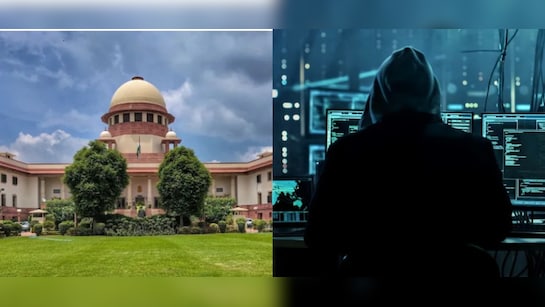In a landmark move to combat a fast-growing cyber menace, the Supreme Court of India has taken suo motu cognisance of the rising “digital arrest” scams that have left citizens — especially senior citizens — defrauded and traumatised. Calling it a “direct assault on the dignity and majesty of the judiciary,” the apex court has sought detailed responses from the Union Home Ministry, CBI, and the Haryana government.
The Case That Shook the Court
The move comes after a chilling letter from a 70-year-old woman in Ambala, who revealed how she and her husband lost Rs1.5 crore to cyber fraudsters posing as officers of the CBI, Enforcement Directorate, and even the Supreme Court itself.
The criminals allegedly used video calls, displayed forged Supreme Court arrest and bank-freeze orders, and coerced the couple into multiple transfers under the guise of a “confidential investigation.” Two FIRs have been lodged by the Ambala Cyber Crime Branch.
Forged Supreme Court Orders Stun Bench
A bench led by Justices Surya Kant and Joymalya Bagchi expressed shock upon discovering that fake documents — complete with judicial seals and signatures — had been used to legitimize the scam.
“The forgery of judicial documents and misuse of this court’s seal strike at the very foundation of public trust in the rule of law,” the Bench remarked.
“Such acts cannot be seen as mere cybercrimes—they are direct attacks on the integrity of the justice system.”
The forged papers reportedly included a fake arrest warrant, a PMLA bank freeze order, and a surveillance directive, all falsely attributed to the apex court.

Court Demands Pan-India Crackdown
Highlighting that similar scams have surfaced nationwide, the court stressed the need for a “coordinated, national-level crackdown”. It said such crimes, often run by well-organized cyber syndicates, require a unified response from central and state authorities.
“A pan-India institutional mechanism is essential to counter this growing threat,” the Bench observed, urging systemic reforms in how digital impersonation cases are tracked and prosecuted.
Centre, CBI, and Haryana Government on Notice
Formal notices have been issued to the Union Ministry of Home Affairs, CBI Director, Haryana Home Department, and the Ambala Cyber Crime Superintendent.
The Supreme Court has also requested Attorney General R. Venkataramani to assist in framing a national action framework against these digital arrest rackets.
The SP (Cyber Crime, Ambala) has been directed to submit a detailed status report before the next hearing.
Next Hearing on October 27
The matter is now listed for October 27, 2025, when the court will review investigation reports and consider nationwide preventive measures.
Why This Matters
The Supreme Court’s action marks a decisive turning point in India’s cyber law enforcement. By categorizing “digital arrest” scams as attacks on judicial authority, not just routine fraud, the court has set a precedent that could reshape India’s cybercrime policy framework.
Experts believe this could pave the way for a Digital Justice Protection Act or national task force, protecting citizens—especially senior citizens—from tech-enabled extortion and judicial impersonation.


